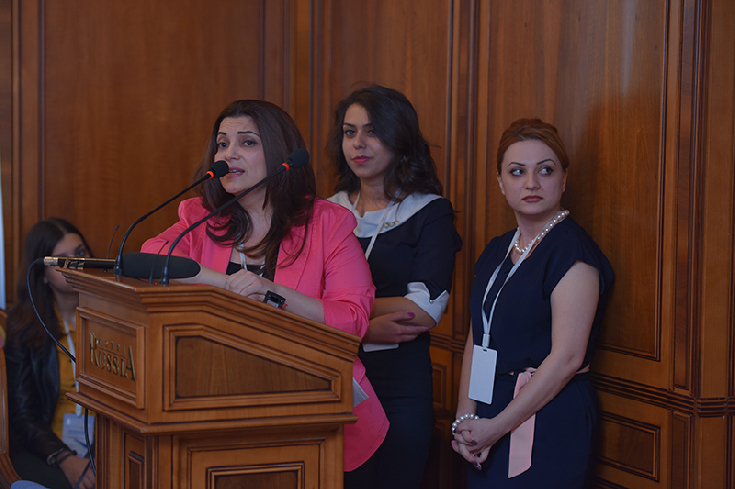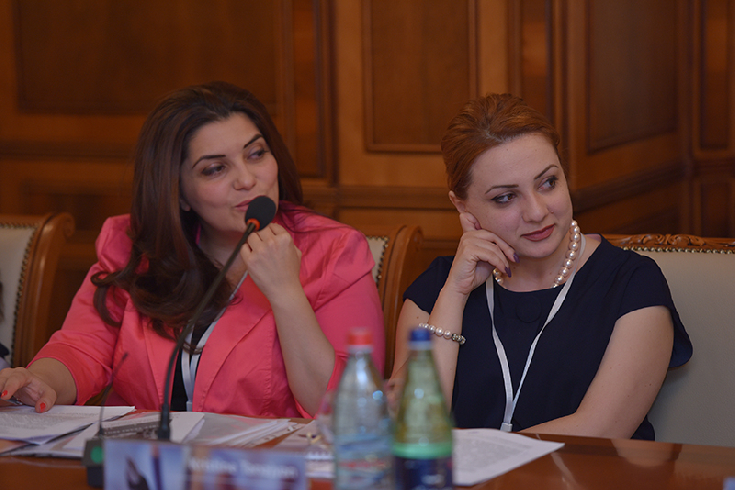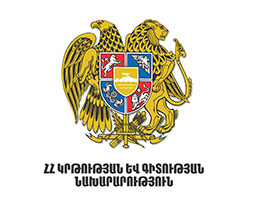
 ChessAcademy.am
ChessAcademy.am
Study of Sociological Aspects of the Impact of Chess on Primary School Child’s Development
 The Chess Educational Research Center was founded in 2015 at the Armenian State Pedagogical University with the help of psychologists. Chess methodologists and groups of sociologists at SEN who work with children are also doing comprehensive research. We spoke to the sociologists about the research that has already been carried out, the methods used, and about their future plans. The sociologists firstly noted that their cooperation with the Chess Academy of Armenia was established when they started to take part in the research carried out in Chess Academy of Armenia at the proposal of GM Mr. Smbat Lputian, well before the "Chess Educational Research Center” was founded in ASPU.
The Chess Educational Research Center was founded in 2015 at the Armenian State Pedagogical University with the help of psychologists. Chess methodologists and groups of sociologists at SEN who work with children are also doing comprehensive research. We spoke to the sociologists about the research that has already been carried out, the methods used, and about their future plans. The sociologists firstly noted that their cooperation with the Chess Academy of Armenia was established when they started to take part in the research carried out in Chess Academy of Armenia at the proposal of GM Mr. Smbat Lputian, well before the "Chess Educational Research Center” was founded in ASPU.
The first study carried out by the sociologists aimed to determine society’s general attitude towards chess as a school subject. A comprehensive approach was used to study the attitude towards chess of all interested parties and reveal stereotypes existing among them. Several subsequent experiments and studies have been carried out to reveal the impact chess has on the formation of pupils’ social and psychological qualities. A study was also held to explore specific value system of the pupils that is directly related to their age psychology.
Later, a content analysis of secondary schools’ textbooks was done which aimed to identify the cause of the intolerant attitude of teachers towards chess textbooks. Many teachers expressed concerns that the textbooks are difficult for primary school pupils. Due to this content analysis, sociologists attempted to explain the reasons for these companies and convey their views to methodologists such as Mr. Samvel Misakyan, which will help to improve the quality of chess textbooks in the future.
The next series of research was carried out simultaneously to chess teacher training that was happening in the Chess Academy of Armenia. The study aimed to reveal the difficulties arising in the organization of chess classes. A holistic approach was provided to the studies and therefore the problems were explored arising during chess classes as well as the attitudes of parents and pupils towards those problems. To ensure that the results of the survey were well-grounded, a later content analysis of the classes was done to reveal the best models to teach chess and the best way to overcome the problems arising during the learning process. The conclusions and outcomes of this research were provided to teachers to ensure effective organization of their classes. A survey was also conducted to study the chess teachers’ and trainees’ pedagogical skills. The empathetic skills of teachers were focused on, and it was revealed how they used those abilities before and after the trainings held in Chess academy of Armenia and to contribute to the effective implementation of chess classes in primary schools.
Sociologists also conducted the experiment to determine whether chess as an academic subject develops alternative and imaginative thinking and creative skills of primary school pupils. To this end, a comparative analysis was made within two main and two control groups, resulting in detailed studies on the impact of chess on the development of the above mentioned skills. This study was also discussed during the second international conference held in Tsaghkadzor that was entitled "Theoretical and practical issues of chess education in schools."
We can say that several methods were used during the sociological research. Very often triangulation was also used by professionals, i.e. several methods of sociological research were combined. During the research several sociological methods were applied providing high rate of efficiency. Those methods are: the method of focus groups, questionnaire survey method, which is used in case of extensive research, depth interviews, scenario analysis methods, each of which is given a priority in a specific case, depending on the purpose of the study.
 Interestingly, studies were carried out in schools in Yerevan yet, ironically, the results cannot be reflective of the whole RA due to the fact that classes in schools of the capital city consist of a large number of students in comparison to the provinces. Schools in rural communities especially had smaller classes, many of which consisted of five to six pupils. The number one relevant problem with schools in Yerevan is the large number of students in elementary schools. The specialists noted that in case of chess, as well as foreign languages, teaching in smaller groups of up to ten provides the most effective teaching structure. There are many schools in the capital city, where up to 40 students are enrolled in primary school. In these schools, the problems related to effective implementation of chess classes are more obvious.
Interestingly, studies were carried out in schools in Yerevan yet, ironically, the results cannot be reflective of the whole RA due to the fact that classes in schools of the capital city consist of a large number of students in comparison to the provinces. Schools in rural communities especially had smaller classes, many of which consisted of five to six pupils. The number one relevant problem with schools in Yerevan is the large number of students in elementary schools. The specialists noted that in case of chess, as well as foreign languages, teaching in smaller groups of up to ten provides the most effective teaching structure. There are many schools in the capital city, where up to 40 students are enrolled in primary school. In these schools, the problems related to effective implementation of chess classes are more obvious.
When sociologists just started the research studies they were enthusiastic to do everything possible to prove chess has positive impact on primary school pupils. Thus they recorded a number of positive aspects of chess teaching, despite the fact that there were also many difficulties and one of them was the ambiguous attitude of the society towards chess. This enthusiasm among the professionals diminished over time, and was replaced by a skeptical approach. However, this approach was overcome too. A new wave of enthusiasm boosted the research done by sociologists when they found out that pupils who had a lower GPA in other subjects were making vivid progress in chess thanks to high social intelligence and pragmatism. Thus, they were being involved in active educational process due to their success in chess.
Sociologists studying parents’ attitude towards chess, note its positive change during the recent years. The change of a broad public discourse has had its positive impact on parents’ attitudes towards chess and it is the result of interactions between parents who prove chess’ significant positive impact on their children. Chess inclusion in the school curriculum broke the stereotypical thinking, according to which success in chess is typical of boys and girls are less gifted with chess skills.Talking about their future plans Christina Tanajyan, Nelly Melkonyan, Nune Gevorgyan noted that they were going to make a double research on attitude towards chess in order to compare the results with previous studies to determine the dynamics of attitude change. Sociologists have also set the task of studying chess textbooks with the help of teacher-methodologist Samvel Misakyan in order to analyze and understand their shortcomings which could present obstacles to the teacher-student and teacher-parent social relations. The study will attempt to find solutions to these problems by making learning process more interactive. Sociology researchers expressed optimism that, despite lack of human and financial resources, Chess Educational Research Center is moving forward with small but steady steps and it will ensure new professional achievements in this field.
By Tatev Khachatryan




